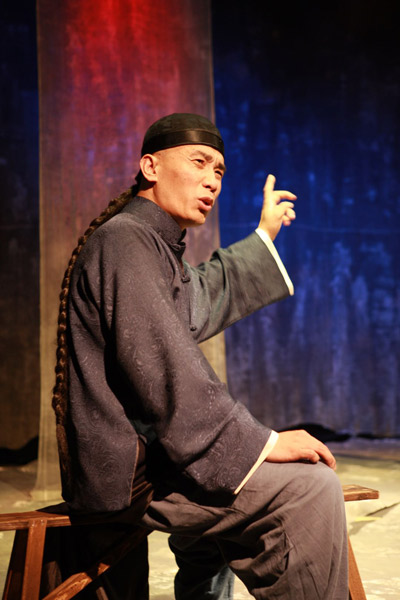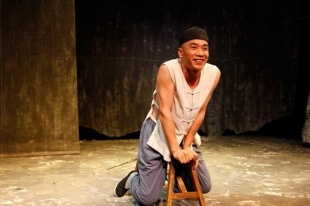Dramatic monologue


"Fuhai tells his life story in a humorous way despite all the suffering and sorrow. He is hopeful about his life, but always ends up disappointed. Lao She is sympathetic toward Fuhai, as well as to the suffering of many other poor people living through those chaotic years," Fang adds. "What makes this story interesting is that it still works today. When we look back at our own lives, we, like Fuhai, try to remain positive even when bad things happen."
After watching Fang's monologue at its premiere at the Central Academy of Drama in 2011, Shu Yi said: "It's one of the best adaptations of my father's works. Fang's adaptation is loyal to the spirit of his novella."
Born as Shu Qingchun to a Manchu family in Beijing in 1899, Lao She is best known for his vivid descriptions of ordinary life, especially of poor people, which reflect the social reality of the time. His precise depictions of local hutong life sparkle with his unique sense of humor and the raw dialect of the capital.
Lao She's novels, including Rickshaw Boy and Four Generations Under One Roof, and his plays, such as Long Xu Gou (Dragon Beard Ditch) and Teahouse, have earned him the reputation as a literary master worldwide.
It is no surprise that, as a Beijing native who grew up in a crowded courtyard house in a traditional alleyway like Lao She, Fang also felt a deep connection to the writer's works.
As Fang says, he enjoys reading Lao She's works because the characters appear as familiar as his neighbors.
After performing This Life of Mine in 2011, Fang began to plan other adaptations of Lao She's works.



































